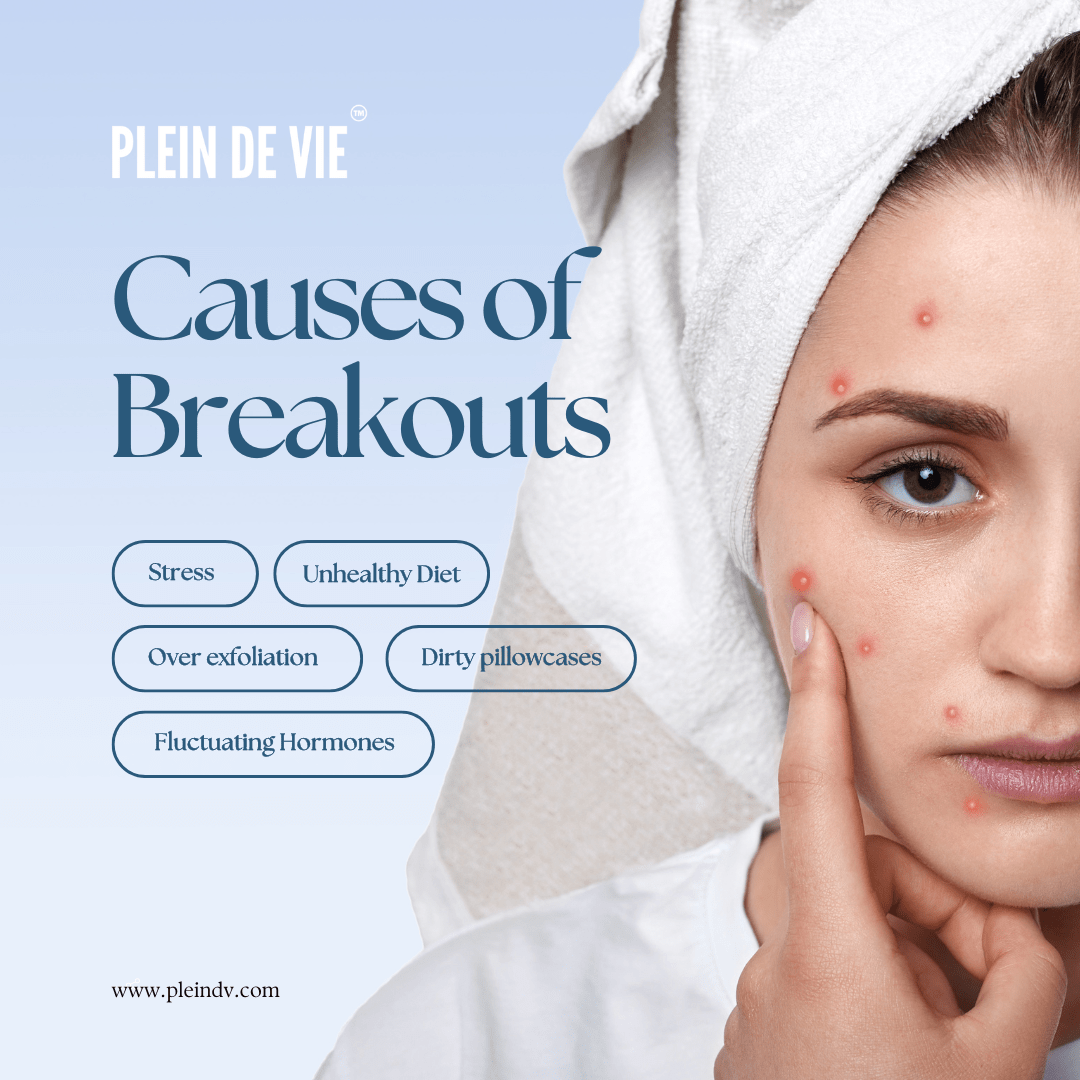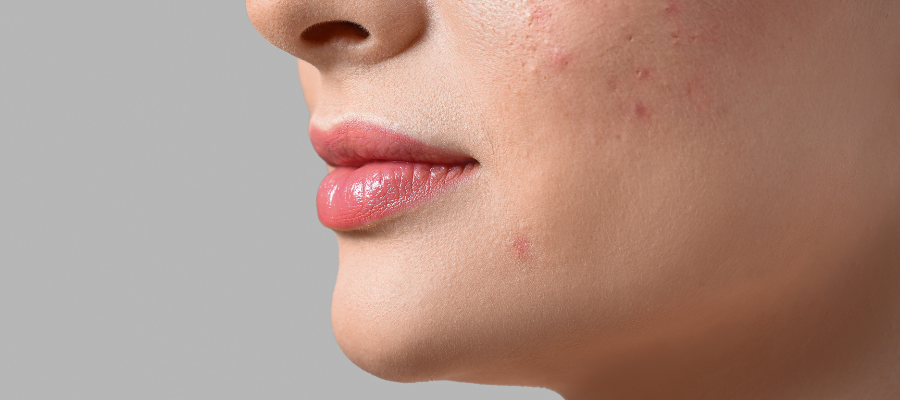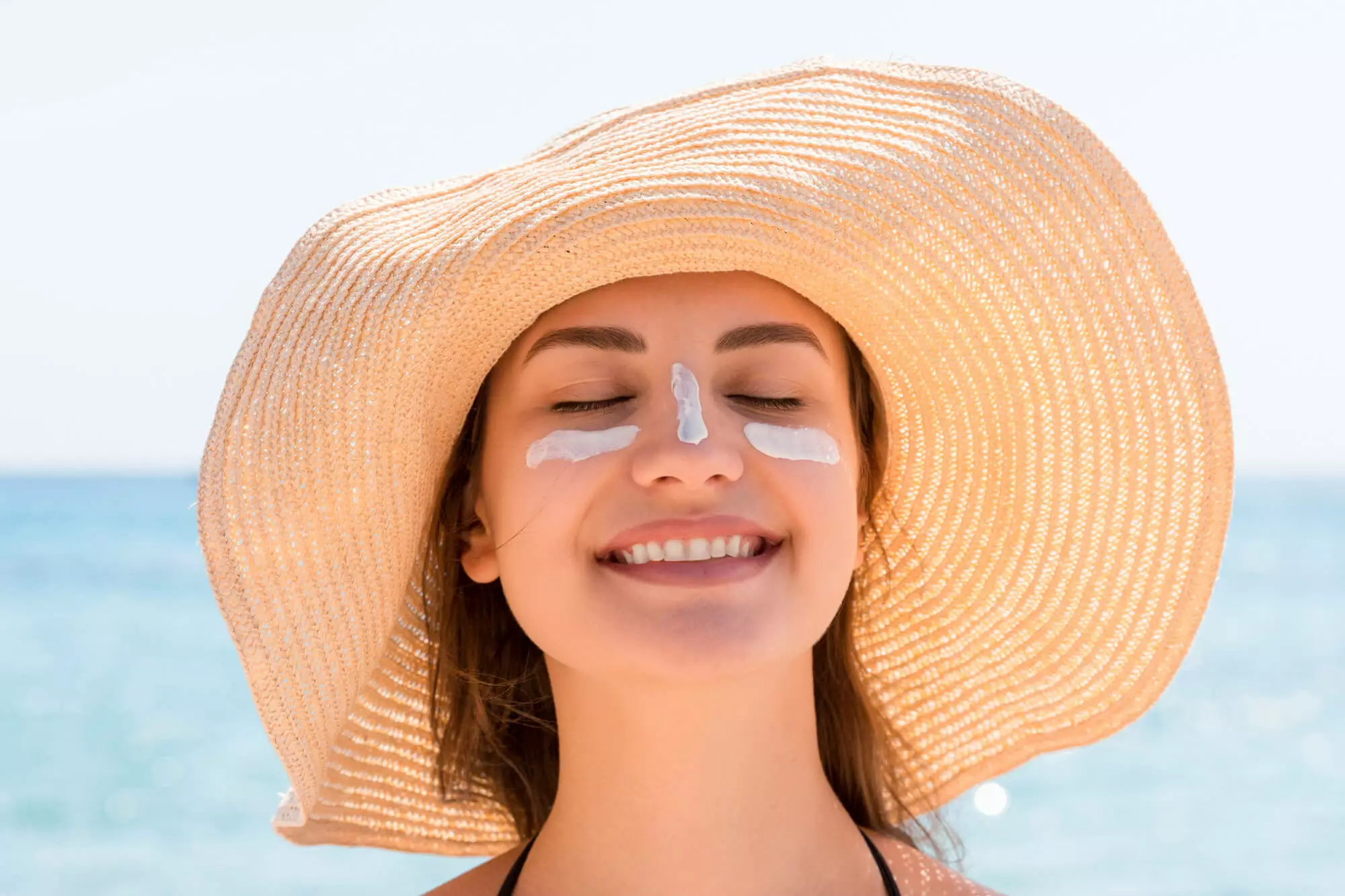
By Admin On 12-03-2025 at 8:46 am
Understanding Acne & Blemishes
Acne and
blemishes are common skin concerns that affect people of all ages. Whether
you're a teenager dealing with hormonal changes or an adult experiencing
breakouts due to stress or other factors, it's essential to understand the root
causes of acne and how to effectively treat and prevent it. In this blog, we’ll
explore the primary causes of acne and blemishes, along with skincare tips and
treatments that can help clear up your skin and restore your confidence.
1. What Causes Acne and Blemishes?
A. Hormonal Imbalances
Hormonal changes, especially during puberty, pregnancy, and menstruation, can lead to an increase in oil production. This excess oil can clog pores, leading to acne. Hormonal acne is often seen along the jawline and chin areas.
B. Excess Oil Production (Sebum)
When your skin produces too much sebum (natural oil), it can mix with dead skin cells and clog pores. This creates the perfect environment for bacteria to thrive, resulting in breakouts.
C. Bacteria and Inflammation
The bacteria *Propionibacterium acnes* is often present on the skin. When pores are blocked, these bacteria can multiply, leading to inflammation and pus-filled pimples, cysts, and pustules.
D. Stress
Stress can increase the production of cortisol, the "stress hormone," which can trigger inflammation and worsen acne. It can also increase oil production, contributing to clogged pores.
E. Poor Diet
A diet high in refined sugars, dairy, and processed foods can cause spikes in blood sugar, which may increase oil production and lead to acne breakouts. Foods with high glycemic index (like white bread and sugary snacks) can trigger inflammation.
F. Skin Irritation & Harsh Products
Using skincare products that are too harsh, or touching the face with dirty hands, can irritate the skin and worsen acne. Over-exfoliating or using products that strip the skin of moisture can also make acne worse.
G. Genetics
Your family history plays a role in your likelihood of developing acne. If your parents had acne, you may be more prone to it as well.
2. Skincare Tips for Preventing Acne &
Blemishes
A. Cleanse Gently
Use a
gentle, non-comedogenic (non-pore-clogging) cleanser to remove dirt, excess
oil, and makeup. Avoid harsh scrubbing, which can irritate the skin and worsen
acne.
B. Use Non-Comedogenic Products
Opt for makeup, moisturizers, and sunscreen labeled as "non-comedogenic" to reduce the risk of clogging your pores.
C. Don't Over-exfoliate
Exfoliating can help remove dead skin cells, but over-exfoliating can strip the skin and increase oil production. Stick to exfoliating once or twice a week.
D. Keep Your Hands Off Your Face
Touching your face frequently transfers bacteria, dirt, and oils from your hands, which can cause breakouts.
E. Stay Hydrated
Drinking plenty of water helps to keep your skin hydrated and flush out toxins that could cause acne.
3. Effective Treatments and Cures for Acne
A. Salicylic Acid
Salicylic acid helps exfoliate the skin and unclog pores, making it a great ingredient for treating acne. It also has anti-inflammatory properties to reduce redness and swelling.
B. Benzoyl Peroxide
Benzoyl peroxide is a powerful acne-fighting ingredient that kills acne-causing bacteria, reduces inflammation, and helps clear clogged pores. It's often found in spot treatments or acne creams.
C. Retinoids
Retinoids (like tretinoin or adapalene) speed up skin cell turnover, preventing clogged pores. They also help fade acne scars and reduce inflammation.
D. Tea Tree Oil
Tea tree oil has natural antibacterial properties, which can help reduce acne-causing bacteria. It’s gentle and can be applied directly to the skin using a cotton swab.
E. Clay Masks
Clay masks, especially those with ingredients like bentonite or kaolin, help absorb excess oil from the skin and unclog pores. They can also soothe irritated skin.
F. Aloe Vera
Aloe vera has soothing, anti-inflammatory properties that can calm irritated skin and reduce redness from acne.
G. Regular Sun Protection
Always use an oil-free, non-comedogenic sunscreen with at least SPF 30. Sun exposure can increase pigmentation and make acne scars more noticeable.
4. Lifestyle Changes for Healthier Skin
A. Eat a Balanced Diet
Focus on a diet rich in fruits, vegetables, and lean proteins. Foods high in antioxidants, like berries and leafy greens, can reduce inflammation. Avoid excessive dairy and sugary snacks, which may exacerbate acne.
B. Manage Stress
Practice stress-reducing techniques like yoga, meditation, or deep breathing exercises. Managing stress not only helps your mental health but can also prevent acne flare-ups.
C. Sleep Well
Aim for 7-9 hours of sleep each night. Poor sleep can increase cortisol levels, leading to acne breakouts. Getting enough rest can help regulate your hormones and improve skin health.
5. When to See a Dermatologist
If your acne persists despite over-the-counter treatments, or if it’s causing emotional distress, it might be time to consult with a dermatologist. A dermatologist can prescribe stronger treatments such as oral medications, chemical peels, or light therapy to help manage your acne.
Conclusion
Acne and
blemishes can be frustrating, but with the right knowledge and skincare
routine, you can take control of your skin’s health. By understanding the
causes of acne and implementing targeted skincare and lifestyle changes, you
can achieve clearer, healthier skin. Remember, everyone’s skin is unique, so it
may take time to find what works best for you. Stay consistent, and always
consult a professional if needed.
Do you have any favorite skincare tips or treatments that helped with your acne? Share your experiences in the comments below! And don't forget to subscribe for more skincare tips and advice!
Author
Admin
Related posts
12-3-2025
The Benefits of Sunscreen11-3-2025
Hair Care Routine11-3-2025
The Ultimate Daily Skincare Routine





